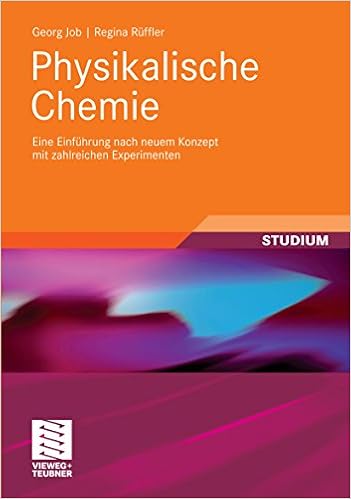
By Chemical Sciences Roundtable, National Research Council
ISBN-10: 0309087341
ISBN-13: 9780309087346
ISBN-10: 0309512441
ISBN-13: 9780309512442
Innovation, the method in which basic learn turns into a advertisement product, is more and more vital within the chemical sciences and is altering the character of study and improvement efforts within the usa. The workshop used to be held according to requests to hurry the R&D technique and to swiftly evolve the styles of interplay between undefined, academe, and nationwide laboratories. The record includes the authors' written model of the workshop shows besides viewers response.
Read or Download Reducing the Time from Basic Research to Innovation in the Chemical Sciences: A Workshop Report to the Chemica Sciences Roundtable PDF
Similar chemistry books
Instabilities of Flows: With and Without Heat Transfer and by Tapan Sengupta, Thierry Poinsot PDF
The articles within the ebook deal with stream instability and transition beginning with classical fabric handled in an cutting edge and rigorous manner, a few more recent actual mechanisms defined for the 1st time and eventually with the very advanced subject of bombustion and two-phase circulation instabilities.
Physikalische Chemie: Eine Einfuhrung nach neuem Konzept mit by Georg Job, Regina Rüffler PDF
Physikalische Chemie wird von vielen Studierenden als schwer und trocken empfunden. Dieses Lehrbuch nach völlig neuem Konzept, das die Darstellung deutlich klarer werden lässt, zeigt, dass das nicht stimmen muss. Anschaulich und leicht verständlich gelingt mit diesem Buch der Einstieg in ein spannendes Gebiet der Chemie.
- Verzeichnis der Chemischen und Lebensmittel-Untersuchungsämter in der Bundesrepublik Deutschland
- foam and foam films. Theory, Ecxperiment, Application
- Saturated Heterocyclic Chemistry (v. 3)
- Actinides in the Environment
Extra resources for Reducing the Time from Basic Research to Innovation in the Chemical Sciences: A Workshop Report to the Chemica Sciences Roundtable
Sample text
Gordon Moore, who predicted that data density would double every 18 months, would be the first to tell you it was not a stroke of genius on his part. Things like the road map are a self-fulfilling prophecy. Creativity may have been stifled, but maybe if you look at how the business has expanded, it’s hard to see how it could have been done any better. Your talk is astonishing to me. I read the financial section, and your business is in meltdown. It is the worst catastrophe in the history of the telephone since Alexander Graham Bell.
Allen Clamen: Manufacturing and marketing managers tend to have projects that are a little bit shorter term than your technology manager. They report to a business manager, who is responsible for longterm prospects as well as the long-term success of his enterprise. The business manager must be cognizant that a company can’t have 90 percent of its activity in the short term or it will, in the long term, be unsuccessful. That is viewed at each portfolio management team meeting. We look at the percentage of projects in each time frame and require 30 percent of the projects to be long term as part of the business strategy.
I’m not talking about, in this case, supporting a central corporate laboratory. That may be behind some of this. Michael Schrage: Absolutely, but in both of those contexts the convergence of allocation of overhead is present. Given a portfolio and a particular perception, we want to charge a certain amount to overhead rather than another amount. If the portfolio is put in the incremental innovation category, we do a different overhead formulation than if it is pioneering research. I’ve seen organizations blow themselves up over the political aspects of that debate.
Reducing the Time from Basic Research to Innovation in the Chemical Sciences: A Workshop Report to the Chemica Sciences Roundtable by Chemical Sciences Roundtable, National Research Council
by John
4.4



